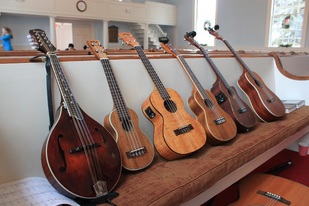 By Chapter 3 we should have a good idea what the problems are. The established church and all its institutions are in crisis. The ship is sinking. The strange part is that what we mostly do is run around trying to save it! Getting lighter or leaner doesn't help on its own. Pumping the bilges doesn't really keep the flood at bay. I hate to say it folks, but it is time to test the water. We need to make plans before the clock runs out.. We are not alone, of course, all kinds of non-profits and service organizations are sinking too. We also have a cloud of congregations. We all must think creatively. Maybe we need to make a different boat out of the old one. So...what will help us do this? At this point it might make sense to survey the ship. What is its fundamental function? What are its fundamental parts? I am concerned primarily with the liberal church but this applies to others as well. In order to get our bearings it makes sense to look to models that have been used in the past. Naturally (at least if you know me and my own tendencies), this made me think of that great transcendentalist theologian of the church, Frederick Henry Hedge. You see, many years ago (in the late 19th Century) Hedge preached a sermon called "The Broad Church". In it he discussed the sources and forces that could make his inclusive tradition even more so, while also keeping it grounded enough to be something other than a discussion society or social clique. Like others before him, he organized his thoughts around the image of a compass. The goal at this point isn't for us all to find the same point on this compass. Instead it is to find our own place between the points. As you read the descriptions you will see that your congregation may travel farther "north" than some. Others may have found a strong place in the "east." This is a good thing. To Hedge the goal was to get situated, be ready to travel, and to be open to seeing and experiencing the perspective of others in their own places. This he called the "Broad" or (small-"c") "catholic" church. A church that knows what it is but is also adaptable and welcoming. Now, he chose his points based on his own New England biases. That is to say, he labeled things "North," South," "East," and "West" pretty much based on the worldview and understanding of his culture and his friends. Don't get bogged down in that. What is important is that he is trying to situate each broad (wide, open, non-creedal) church somewhere between these four elements, each balancing out (and in conversation with) the others. Hedge began with the east. For him this pole stood for the unchanging and eternal parts of the community. This is the pole of core belief. It is the story by which we tell our own stories. "The east is the region of steadfastness, of perpetuity...Every church must have its conservative side, its point of resistance, its fixed fact." Even churches like our own need something like this to hold it together. Without the eastern pole, we are adrift. There are churches (liberal and conservative) who try to hide it and who (at least among the liberals) even deny it. Yet the east is there for us all. What it is varies of course. In the case of my own congregation we take the teachings of the heroes and stories of the Bible very seriously, even if we do not always agree in interpretation. There is our covenant as well "In the Love of truth and the Spirit of Jesus, we unite for the Worship of God and Service to All." Also, though it may seem strange to some, the idea of a non-creedal tradition is itself a central belief.. We explore our faith together, with the understanding that we will disagree. For another congregation the eastern pole may be different. It may provide a greater or lesser pull. However, it is there and gives us a foundation on which to build. It also gives us something to struggle with and against.. "Christianity," Hedge writes "though bound to a given idea and to certain immutable truths is not, for the rest, a fixture, but a movement and a growth." What keeps our faith vibrant and growing (here we are talking about spiritual growth, not numerical growth) is that opposite pole. The west calls to us as well. Back in Hedge's time the image was an obvious one. There the "wilderness" started right outside Boston's western suburbs and stretched all the way to California. For the people of the area and era, it stood for almost unlimited potential.
That said, it is hard to get up for the western hike sometimes. When we think of this pole there is both excitement and fear. It calls us to creativity in both our personal and corporate lives. The west is uncomfortable. Still, we need to do go there, don't we? Henry David Thoreau wrote (in "Walking") "Eastward I go only by force; but westward I go free." Hedge asks us to consider what we are holding on to that we don't need to take with us in our new explorations. In church language, how many times have we used the phrase "we have always done it this way" as our sole excuse for not changing? What holds us back more than anything else is that fear of failure. A journey into the wilderness inevitably leads to numerous misadventures. When we are finally safe and sound we love to look back at them, impressed by our own perseverance. However, at the time they are just painful. They challenge our sense of self. We are embarrassed. This is one of those places where an attitude adjustment is in order. We need to get over ourselves. We have to explore and experiment. We must prepare ourselves for mistakes and wrong turns confident that our final location will make it worthwhile, even if we don't ultimately know where that is. Thoreau reminds us that "We go eastward to realize history and study the words of art and literature, retracing the steps of the race, we go westward as into the future, with a spirit of enterprise and adventure." OK... So what does that leave us? The north is the next on our list and for Hedge represents ideals and mystical connection. Quite simply, for most folks (my hero Larry Wilmore being a notable exception) the northern arrow points "up". This is the direction we think of when we think of the transcendent, the Divine, God, or the Great Whatever. This is what makes congregations unique. We are into the big question and the big connection. An internal urge--small or large--toward exploring this dimension of our lives is what drew us to find a church. We know we won't ever have all the answers. Yet we travel north in fits and starts. Our communities of faith are frequently the gates and doors that we take to go that way. Frequently it is where we find the best companions and the clearest road. Hedge reminds us that "mysticism is a very important element in religion--a feeling after God... It is that by which religion lays hold of the invisible and enters into fuller, that is, more conscious and intimate, communion with the spiritual and heavenly world." Finally, there is the south. Here is the home of ritual. Hedge says, "A church requires a ritual, requires symbols and sacraments,--something outward as the exponent and medium of ecclesiastical life." North and south work together to help us connect to each other and the Divine. In a church like mine, it may at first seem like we don't have many symbols and sacraments. However, it just means that what rituals we do have grow in importance. Our worship services--while comparatively simple--are filled with elements we expect to sustain us. The cross behind the pulpit reminds us that not everything is about us. Sermons, hymns, special music, contributions for our kids and monthly communion help us, through steady and meaningful repetition, to look north to God. Do you see what these points have in common? They are all religious. They are all spiritual. They aren't about programs, budgets, or membership initiatives. They are about the deep and the eternal. They are about the thing that no other organization does as well as houses of worship. If we are to build the new church out of the old, it makes sense to start by situating ourselves in the seas of spirituality. What better thing to use than a compass, helping us to narrow our thoughts down to the basics? Other institutions and projects may grow out of our foundational work. They certainly should! Still, we need to remember that they are secondary. Buildings are nice to have, Sunday school is, too. It is great to have money and staff. It is lovely to bring them all together on Christmas Eve and Easter Sunday. Yet without these four points what we do is nothing but a show; a chance for warm and transitory feels. So, where is your ship? How do you situate yourself? How do you situate you community? Where you land will say a lot about the direction to take. Then we can ask ourselves if we need to move or--just as likely, possibly even more--we can ask what new church we need to build in the same spot. We should also remember that finding the location of others will help us form coalitions, squadrons and fleets to do the work of church together. As denominations break down and seminaries alter their course, each church has to find its way, but we do not go alone. Hedge concludes his sermon by saying "Let each church labor in its place and kind to develop and assert this catholicity, and the boundary lines which divide the sects shall be washed clean out in the gracious life that shall flood them all, and fuse them all into one prevailing kingdom of God, whose unshut gates shall exclude none that desire to enter, and where east and west and north and south shall meet in peace and join in praise." That is in for Chapter 3! If you made it to the end, I congratulate you. As you know this is part of a series. I am not sure what comes next. If you have any thoughts or stories to share about the new church being built at your spot of spiritual life, please share! Here is Chapter 1 Here is Chapter 2 Here is Chapter 4 All Hedge Quotes are from his sermon, "the Broad Church".
0 Comments
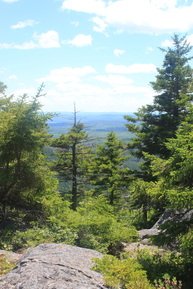 Back when I was in seminary, there was a retreat center that ran advertisements in church trade magazines. The ad featured a large picture of a youngish hipster male blissfully and intently staring at a handful of moss. I will say that again. He was staring at a handful of moss. It appeared that he had previously been smelling it and was now in the process of of making it his pet. I always thought this picture was a little odd. I get the idea of course. I know (and teach) my Emerson and Thoreau. "Come to our retreat center and stare at moss" isn't really that bad a sales pitch in the world of spiritual and religious development. It indicates an extended period of free time with nothing to bother you. You have the freedom to stare at moss! What a blessing that is. That image has been flashing through my mind lately when people ask how my "vacation" is going. They mean my sabbatical, of course, but since they probably aren't reading my blog their image of me is closer to that of our moss-meditating friend than it is to reality. At the very least I must be sitting by the lake, right? Nope. I have projects and ideas, many of which I have already mentioned. However I am finding that there is a certain flexibility in my time that has allowed me to engage in an unofficial listening tour of church leaders who also happen to be my friends. I have to tell you. What they report is both exciting and sobering. Things are hard in the traditional church. People are stressed out. Attendance is down. enrollment is down. Pledges are just holding their own in most places and dipping in others. Our old, romantic-yet-tired buildings keep sucking away more and more of the money. Our pastors feel the pinch of limited resources and guilt for not being able to "turn it around" and send the church back to the dreamy heights of the 1950's and 60's. They experience this while knowing in their hearts that in most cases they really really can't. That train has left the station. A new era has begun. Still, in the midst of all the crazy and the chaos, people are finding new ways to do church. They are seeing clearly enough to begin to build the tools and techniques that will help the next generations grow their own communities of faith. They do this even as they live in and love the old way. In an earlier post I wrote about how the new church is coming but that I didn't know if I had any suggestions. I still may not, but I do have a better idea of what people see as the next thing. By "people" I mean ministers, mostly, and some dedicated lay leaders. Which is to say, the folks who think about this pretty much all the time. I am beginning a series today about what I am learning. First we will look at some changes that people are talking about. Perhaps there might even be some suggestions by way of example, but I can't promise anything.... Here is #1 Denominations are becoming both less important and more important. This really shouldn't be a shock to anyone, right? We all know about those people who do not claim any particular religion (we like to call them "nones" apparently). Well, guess what? Most lay people who attend church probably don't claim a specific denomination. Instead of saying "I am a--" [UU, Baptist, or...whatever] they say "I attend--" [First Parish or Johnson Street Baptist or...whatever]. Their identity is with a specific group of people with whom they have formed relationships, not with an office in a city somewhere, a set of historic institutional predecessors, or even a poetically-named initiative. The specific differences between the United Church of Christ, Unitarian Universalist Association, American Baptist Convention, and Disciples of Christ, for example are very important to the people whose job it is to serve member congregations. To the person who shows up on Sunday or volunteers in a congregation's ministry it is a lot less important. There are plenty of agnostics in conservative churches. There are plenty of evangelicals in liberal ones. I have met a lot of them. Mostly they are happy where they are and have solid reasons for attending a congregation that does not reflect their theology. To put it simply, they love the people they go to church with. That said, all you denominational types don't need to panic right away. There is something very important that you need to do. Congregations still need services. Folks may no longer want denominational leadership (denomination x tells me to do y so I will) but they do want quality materials for RE. They like to have their professional staff licensed in some way. They need people with big picture knowledge to facilitate their own congregational discernment. Churches need to know that they are not alone even if our connections work differently than they did before. Denominations cannot point the way to the future because they don't know what it will be either. They are doing their best to do so but there have been so many changes. Just like churches, themselves, they are trying to survive, to hold on to what they have been for the last century or so. Also just like the churches the option to turn back or stay the same is a mirage. We are all becoming transdenominational. We are finding out together what that means. Clearly there is a place for institutions that work with (not over) congregations. I know many denomination leaders who are doing just this kind of work. It is happening but it is slow and sometimes obscured by other things. For those of us who serve churches in the Congregationalist tradition we have a model hidden among the various programs, initiatives and positions that have built up over the years. Providing basic services was what denominations (or associations) were originally all about! In the Congregationalist way every congregation is its own denomination. An individual is only ever a member of that local church community. Good news! We are headed back to our roots. The challenge is to point ourselves in the right direction. OK this is already long so I am ending Chapter #1 Here is a link to Chapter #2 ...TO BE CONTINUED... So today is the first official day of my sabbatical. I have already been working on various projects but in the next week or so, things will be kicking into a higher gear. Over the last few weeks, there have been some changes to the plan. My "Folk Project" will need to take a back seat to some more pressing material. In fact, a theme has emerged that runs through most of the other projects and, naturally, this is something that I intend to follow.
I am enclosing here the outline of my work for the next few months. They are roughly in the order they will be addressed. Of course, there will be some overlap as well. Teaching: Some of you are aware that I have a son who is "homeschooled". The term--while it makes sense from a legal perspective--is a bit misleading. Most homeschoolers do NOT spend their days sitting around the kitchen table. They are highly social and are involved in programs outside the home on a daily basis. Many times they have a great deal of control over what and how they learn. It can be complicated, but for a certain kind of kid who is willing to take ownership of their education, a well-conducted homeschool plan is just the best darn thing. Among other activities, my son attends a school that subscribes to a "self directed learning" model. It has teachers and advisers who help the student plan out their year. Various courses are offered by the teachers, volunteers, and interns based on the interests of the student body. This is where I come in. I will be teaching two course at the school this fall. One is Public Speaking and the other is Nature and Spirituality. I know a bit about both subjects and expect to learn more. I am looking forward to this. I am curious how it will go. While I have done some teaching with children in this age group (10-19), it has been mostly in a church context. Of course, there is a great deal of similarity between a Sunday School model and what happens at this school, so it won't be entirely unfamiliar. Still, it is good practice and a lot more "face time" than what I am used to. Each class meets formally once a week and then I will be available as a "mentor" at other times. Thanks to this time commitment, it is the first on my list. Church Curriculum: I have written about this before. We are transitioning our Sunday School to a "one-room" model with a series of "units". Each unit will lead to some kind of project or presentation in church. I am responsible for writing all but one of these. My former intern (now sabbatical pastor) will be writing the second unit on Advent. I have already written the first unit, which is about women in the church. This means that the next one I am concerned with (a social justice unit with a focus on LGBTQIA+ issues) will need to be ready some time in November so the teachers and I can go over it before it's January start date. Obviously, the teaching I will do at the school will influence how I go about these curricula at church. In both cases there is a "project" element. Also, they both work on a student-centered discussion model. A great deal will depend on their willingness to be engaged and our ability to engage them. I am actually moving a little slower in this area right now because I think that my perspective may change after doing some teaching. Dungeons and Dragons Club: Yeah, there is this. I am well into the development of a world for my player characters to explore. I have been a Dungeon Master for many a year, starting way back in my teens when being a nerd wasn't so cool. Perhaps that is why I am still a bit surprised by the level of initial interest from the kids. It is a great thing! I am very pleased. My goal is to have enough material ready for a first meeting near the end of September. At that point we will make characters and perhaps run through a couple of short battles or scenarios to see if everyone gets the game mechanics. It would also be good to see who actually shows up so we can plan for either one or two groups. I will probably also need a rotating cast of "assistant DM's" to keep things rolling... OK... I assume you see the theme, right? All of these activities will apply most directly toward the church's religious education program. RE has been an interest of mine ever since my first paid gig as "Co-Youth Group Director" for the middle schoolers at the UU church in Evanston, Illinois. In my current capacity I don't have as much time to do get into it as much as I would like. I am hoping that using my sabbatical time to get the prep work done will make me a better pastor to the kids and their parents. We shall see... What this does mean is that the who Folk Project must be the last of my concerns. I haven't given up on it entirely. However, the spirit does seem to be moving me in a different direction right now... I am technically on vacation, but I have taken a little bit of time to get started on one of my sabbatical projects. You see, we are trying something new in our Sunday school. We are going to a "one room" model in which all of the kids will work together on a single topic and then (at the end of each unit) will present something (a play, readings, music, or reflections) during worship. I, at least, have high hopes for this. I hope the kids are engaged. I hope the parents are engaged as well. Maybe that is why I have taken it upon myself to develop the curricula for four of the five units.
The first of these units (ending with a play on Reformation Sunday) is about women in the church. In particular, we are focusing on one of the giants of Universalism, Olympia Brown. There is a lot to say about her. Here it must suffice to point out that she was a "first-generation" suffragist, an abolitionist, and the first woman to be ordained and serve a congregation while also being fully recognized as a minister by her denomination. She was smart, determined, tough, and (according to many) a great preacher and pastor. In my world she is held up as a role model for ministers of all gender identities. Of course, I want people in my church and Sunday school to know more about this remarkable person. However, I am also well aware of the context in which they will be learning about her. This unit begins when people come back from their summer adventures and it will end on October 23, the day Brown died (in 1926). Obviously, we will be thinking about another leader during that time. We will be thinking about (hopefully) the impending election of Hillary Clinton as the first female president of the United States. Brown was one of the few women of her generation of feminists who had the opportunity to vote for the 19th amendment. I cannot help but wonder what she would say about our momentous opportunity. I have watched parts of both the Republican and Democratic national conventions. I have followed the election coverage. I have been involved in many conversations with political friends and foes. So often we seem to be stepping around conversations about gender. Some people (pundits, mostly) seem to feel it's not that big a deal anymore. Others, perhaps, are struggling with their own feelings. I even get why this event is occasionally downplayed by Clinton supporters. It appears that many in my white male cohort are intimidated by the possibility of a female president. I suspect others from other cohorts are as well. There is always the question of how much our impressions of her--those famous "unfavorable" ratings--are based on our own unrecognized biases. I am not intimidated. I am looking forward to it. That said, having been raised from the cradle as part of the American left, I have never voted for her (or her husband for that matter) in the primaries. This time around I was excited by the energy that Sen. Sanders has brought and I am looking forward to participating in whatever his (our) movement generates in the future. However, like the vast majority of Sanders supporters (look it up), I will proudly and happily vote for Sec. Clinton. We are making history, people! My vote will not be anti-Trump (at least not entirely). It will be anti-fear and pro-future. Even if you are not voting for her, it is hard to miss the significance of this moment. Sexism in this country is so vast a force that we participate in it without even being aware. We all do. We have never known a different way. This is part of why we see so much resistance. There is a disconnect. We experience a cognitive dissonance when we think of the idea that--after a run of 44 men of varying competency--we will be doing something different. Will doing the different thing cure us of sexism? Obviously not. Electing Barack Obama didn't cure us of racism, did it? That said, it is a huge step and one I look forward to making. Anyway, as I prepare for this religious education unit I am aware that I will not be there to help teach. Two of my sons will be there (at least part of the time) and I will certainly follow its progress. I hope that the people who are connected with it (kids, teachers, parents, and congregants) will greet with excitement the chance to look back to a time not so long ago. I hope they take advantage of what is going on around them. I hope they celebrate how far we have come. Yep, I am a minister and have revealed my political preferences and party affiliation. I will remind you that Burbania Posts is not affiliated with the congregation I serve. All the opinions herein are my own and not necessarily those of my congregation or individual members of that congregation. I want to be clear. I chose a life in the church. When I was about 17, I became one of those kids that hangs around the margins of friendly youth groups. I would show up for pizza and movies. Sometimes, I might even go to worship. At that time my parents were not church people. They liked to sleep in and have brunch on Sundays. I went on my own.
There were many reasons for my decision. I was interested in issues of life and death that didn't seem to be addressed in other places. I was also a very political kid. In fact, I decide to become a minister at the 1988 Democratic Convention in Atlanta. I was a "page" for the Maine delegation (I wasn't old enough to vote ). However, I was also there as a volunteer for Jesse Jackson's presidential campaign. It was my time with that campaign ---staying up late with a combination of labor organizers and pastors ---that helped me find a different path from the political system I had become disillusioned with. That is when it finally occurred to me that I could find a way to combine my interest in spirituality with my interest in helping people. None of those folks I knew in Atlanta would remember me today but I am glad that I met them. The point is, I love the church. There have been times and contexts where I have found myself in a "poor fit". There are times when I have grown tired both as a layperson and as a pastor. This is natural. That said, I have made the church central to my existence. It is my job. The church houses, clothes, and feeds me...literally. When everyone else leaves, I am still there. It is also, in many respects, central to my social life. Outside of my family, the vast bulk of my friends are either clergy or clergy spouses. So it is no small thing to me when I see the changes happening in our congregations and institutions. You can count me in the front ranks of those who have a lot to lose. Like everyone, I see that most churches are shrinking. Some of them are closing. Supporting institutions like denominations/associations and seminaries are merging and sometimes vanishing as resources for survival become harder to find. Well-meaning church growth consultants will sell you recovery programs. The problem is that their success rate is hardly better than doing whatever you are doing now. Pub Theology isn't going to save us. Tweaking the liturgy isn't going to save us. Increasing or decreasing staffing isn't going to save us. Altering our programming isn't going to save us. At least not the "us" that we think of when we think of the traditional institutional church. Change is already here. It is inevitable that we greet this desperate situation with a certain amount of anxiety. This is simply because the change we see is also inevitable. There are too many forces at play to turn back the clock and expect that being the "best congregation or denomination ever" is going to bring people back in to worship every week. We are in the midst of watching something we love potentially die. It is as if we built sand castles on the beach expecting that the tide would never rise. Well now it has risen and it will continue to. Building a bigger moat will work about as well as it does on the beach. Our culture will not reverse itself. The institutions that we know and love will either fall into the sea or become something entirely different. We do no one any favors by pretending that this isn't happening. When we do, we all end up running around trying to fix it. Then, when we fail we label ourselves "failures". Perhaps we find others (denominational leaders, pastors, church moderators for example) to blame for a flood that has been centuries in the making. In any case, we mourn the loss and see it as final and tragic. None of this is a necessary response. What we should do is stop our whining and face the future with our heads high and our hearts open. That, of course, requires us to greet our situation using a different frame. Instead of anxiety, fear, and frustration as we watch the "old thing" fall away we need to turn to the "new thing" being born with a combination of hope, love, and excitement. It is exciting, you know. After centuries of doing roughly the same thing we have been chosen to reinvent how people do religion! Who wouldn't want to do that? I don't know about you but I believe in resurrection. I feel blessed to be able to witness at least the beginning of this one. The challenge ahead of us, frankly, is a big one. Those consultants I mentioned? They are doing their best but the fact is no one knows what is coming. They are showing us programs that worked somewhere else (we hope). They do not know our (or your) church. Each congregation and each religious organization has a part to play in this resurrection story. That part requires courage. There will be more failures in our future than victories. Yet, the victories will be greater than our failures. It means every leader of every committee in our committee-filled faith will have to expect that they will be sifting through the ruins of plans A, B, and C (at least) to find the small successes with which to build a new way of doing church. Every pastor will have to expect that the church they are building may be beyond their (our) skill set to lead. Denominations and Associations may have to face the fact that they are in the way rather than the way. Everything must be on the table. Why would we expect what comes next to be at all like what is here now? As you might have gathered, I am not planning to make any great system recommendations at this time (and possibly ever). Too much is in flux. What I would like to suggest, though, is that we practice changing our attitude. We need to be aware of our irrational concerns and to work to solve only the rational ones. We need to once again find joy in innovation. We need to cheer the heck up and open the windows. Throw things against the wall and see what sticks. Then clear out what falls and move on with more grist for the mill.. This is not a time for timidity. Church mice can hide and wring their hands. The rest of us cannot afford to. I chose a life in the church. I do not want the new church to be built by people with closed minds and hearts. I do not want to spend the rest of my life in an institution that is bitter, angry, and always looking back. I do not want to live in a church that is sincere but scared of the world around it. Can we prepare ourselves for the leap of faith? I hope so. I do not enjoy living in a world of infinite resignation. You may have noticed that there is an election on. However, I'm not talking about the one with Donald Trump and Hillary Clinton... If you spend a lot of time in my world, then you realize that I am talking about the election for the next president of the Unitarian Universalist Association of Congregations. Sometime in the last couple days the candidates were announced and now there is much running about discovering who is supporting whom. Also, we are learning about different positions on the future of the Association. That part is slightly less interesting at the moment (in the small world of UU ministers it does feel a bit like high school). Yet, of course, platforms are more important in the long run than social concerns. The same can be said for questions around general leadership ability and competence. Since I am not key to anyone's election strategy, I have plenty of time for reflection. This is nice. My Facebook is filled with posts and updates from both campaigns and honestly it will take a while to sift through all the material. Right now, however, I am noticing the electoral system, itself. In the United Church of Christ (which I and my church are also affiliated with) we elect our leadership somewhat differently. While it isn't the full papal conclave, it also isn't the same as a vote for governor or city council. In fact, it is much closer to the way Congregationalist churches select pastors. At General Synod this past July we elected the ninth General Minister and President, John Dorhauer. In that case he was the only candidate presented. There was a search committee and that committee gave us one name for an up or down vote. The candidate spent his week campaigning in a way more similar to that of a minister seeking settlement than to a politician seeking higher office. The whole process felt like an extended "candidating week" when a prospective pastor and local congregation try each other out. Of course, while some of our questions were about the candidate before us, this wasn't our only concern.Those of us who were delegates (and therefore voters) also had to consider the process. Did the search committee behave in the way that was expected of them? Were they duly diligent in their quest for the best candidate? Again, this is just like a congregational search. In this case the conclusion was that they had been and Dorhauer was selected. Now of course there was grumbling about that. Those of us who hadn't been paying close attention to the search process – – to be clear, people like me – – had thoughts about who else we might have chosen. The debate, in fact, was vigorous and healthy. My fellow delegates to General Synod know that feelings around the election affected other decisions (such as what system of governance to use) as well. Still, I think the process was a good one and the strong discussion certainly helped us refine our wishes for the UCC in the future. The UUA is actually in the process of changing their system. Previous presidents have been elected outright. People would put themselves into nomination. We would meet at General Assembly. Then at some point during the weekend there would be a vote. This system felt much more like the normal elections we know in state, local, and national government. There were brochures, speeches, fundraisers, and whatever sort of other advertising that could be managed. There are advantages to this system as well. In spite of a certain level of awkward contentiousness, there was plenty of opportunity for having one's voice heard along with the hearing of other voices. Now the system will be different. This new election is a hybrid of sorts between the old way and what is done by the UCC. There was a search committee that came up with two names instead of one. Therefore we will have an election like usual. Only this time the candidates have been vetted. (Update: My friend Sarah Stewart reminds me that there is a sort of "write-in" or "by petition" option. However, unless someone steps up soon, I don't see them having much of an impact this time around.) It will be interesting to see how it all turns out. I suspect there will be some tweaking at the end. It is certainly a good faith effort that may bear its own fruit. That said, the election will still be long and probably expensive. If the goal was to prevent that, I don't see how this plan will. If it wasn't the goal, that is fine by me. I love watching elections. While some of them can be annoying, they can also be energizing if the candidates and campaigns do their job well. Anyway, here are the webpages for the two candidates. I have only met either of them briefly in the past but by reputation they are good folks. The search committee seems to have done a pretty good job. Here is the page of Sue Phillips and one for Alison Miller. Good luck to both of them! |
Adam Tierney-EliotThis is my old weblog of many years. I will probably post here from time to time is there is a subject that does not fit WWG. However WWG is the more active page at this point. Archives
April 2022
Categories
All
|
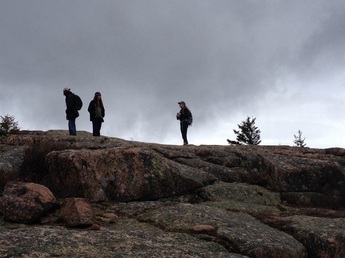
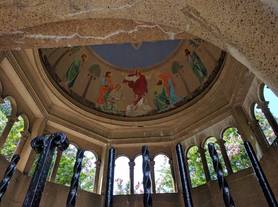
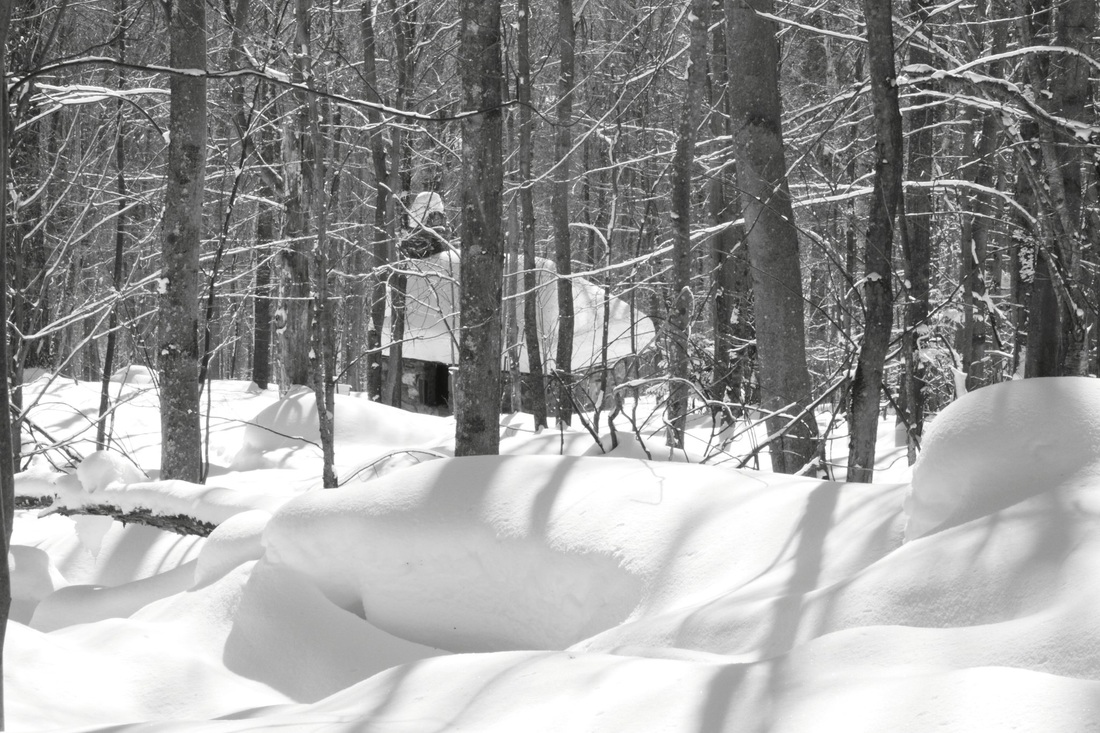
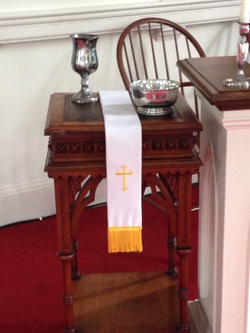
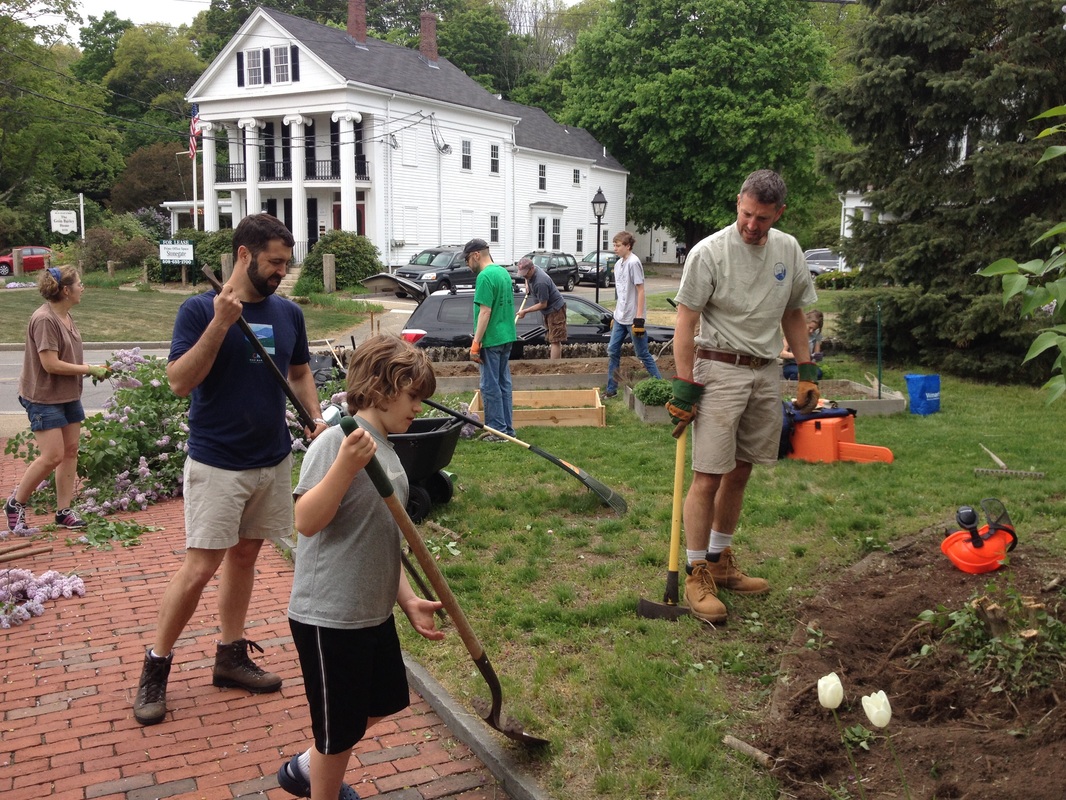
 RSS Feed
RSS Feed